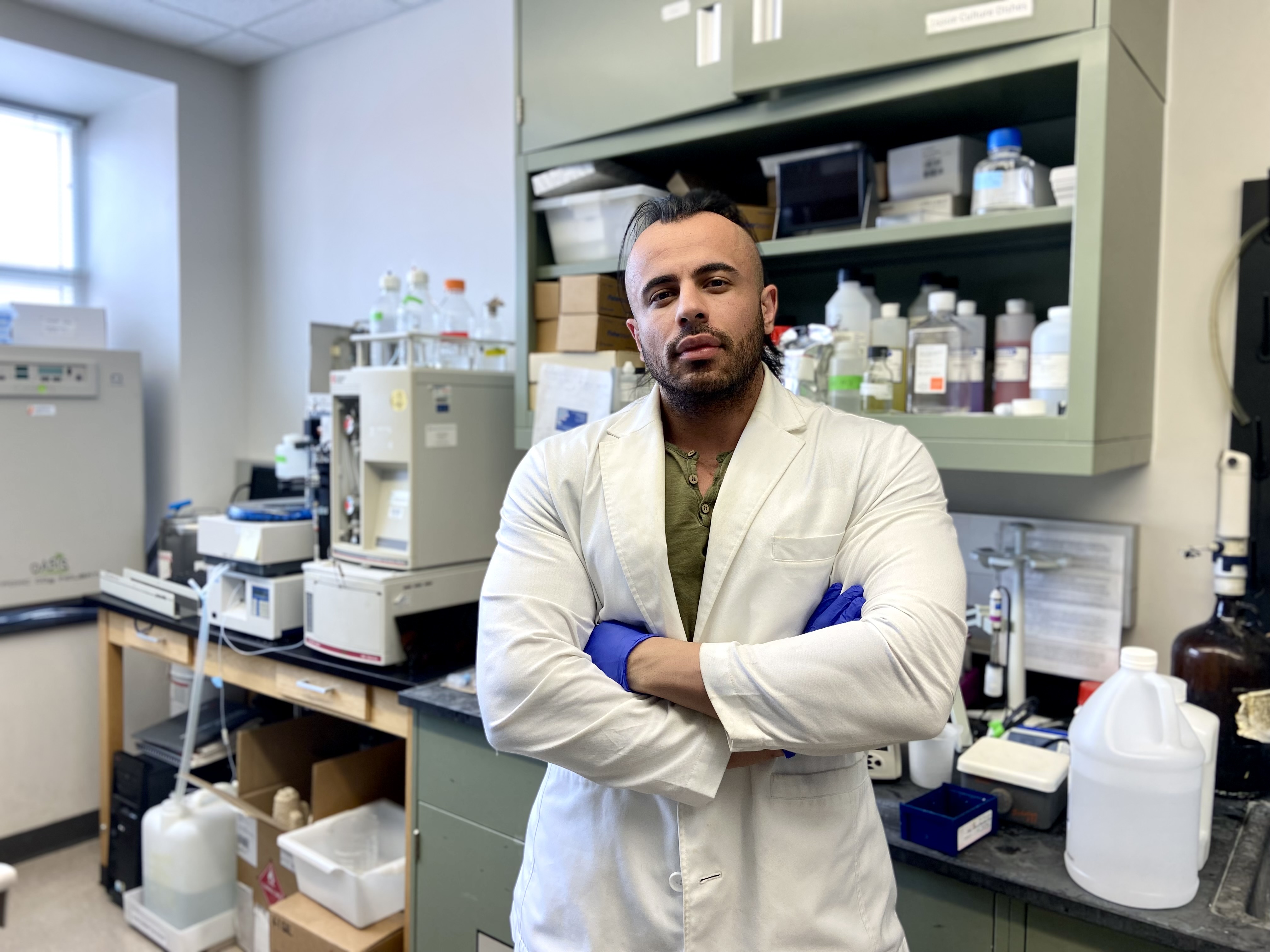Aaron Chacon has entered the final year of his PhD program in pharmacology and nutritional sciences. Early into his studies, he applied for an F-31 pre-doctoral fellowship with preliminary data and received funding that has supported his research over the last six years.
Chacon has also served as president of the department’s student association for two years. During that time, he recruited guest lecturers from industry or academia to campus, hosted workshops on grant and resume writing, and helped onboard new researchers joining the lab. In recent months, he has also filed some patents, with support from UK Innovate, to further strengthen his research efforts.
Chacon wasn’t always the standout scholar he is today. He shared that he “barely squeaked by” during his undergraduate career in Austin, Texas, before a six-year stint as a dietitian. He also spent time as a phlebotomist, allowing him to gain hands-on experience and envision what a career in the medical sciences may look like.
“It didn’t sit right with me that I did so poorly in undergrad. Working helped me grow up and realize I could do more, so I applied for a master’s program," he said. "And I did really well in that, my confidence was rising, and I thought 'Okay, I can keep going, I can get a PhD.'”
For the last six years, he has been studying circadian rhythms with support from mentors Zhenheng Guo, PhD, and Ming Gong, MD, PhD, professors in nutritional sciences and physiology, respectively.
“I think it's one of the most fascinating subjects. But experiments can be tedious because it’s very, very difficult to collect data for something circadian-related,” he shared. “You can't just look at something once or twice. It’s more about seeing how change occurs over 24 hours and if patterns emerge over time. It requires a lot of long hours in the lab to get good data.”
Chacon was also driven to be successful outside of the classroom. For eight years, Chacon practiced professional bodybuilding, even winning North Carolina’s Body Building Championship before relocating to the University of Kentucky. Today, he's training at the gym six days a week for an upcoming amateur martial arts competition.
Though he cites his competitive spirit as the impetus for his early successes, Chacon has come to appreciate and advocate for more work-life balance, especially for future researchers.
For Chacon, he said, “it’s all about balance.”
“If I could say anything to future students, it’s that you’ve got to have some something outside of your academic work,” Chacon said. “I think it's extremely difficult for new students because they just want to be the best, but you’ll be here for five, six, maybe seven years. That's a long time. If you know you're doing science 10-12 hours a day, you need something you’re passionate about outside of the lab, too.”
Chacon plans to defend his thesis and graduate later this year. Though his next steps are undecided, he knows it will involve passing his expertise along. He shared, “I think if you’re going to put in the work for a doctorate and gain this level of expertise, you almost have a responsibility to pass that on to the next generation.”
